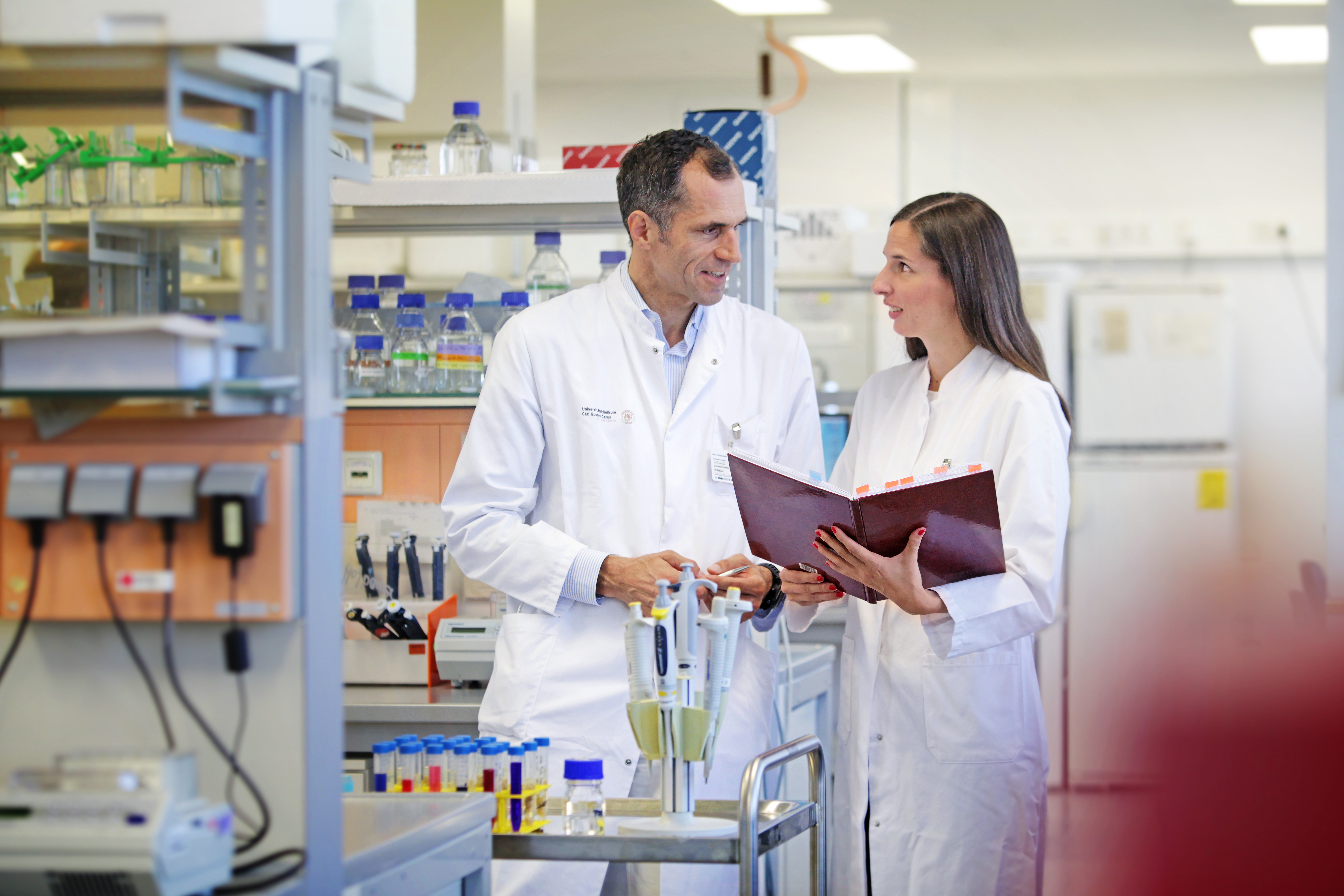
How does diabetes impact bone health?
Dresden, 05.09.2019
Diabetes mellitus is a widespread metabolic disease, with negative/adverse effects on many organ systems. Diabetes also significantly affects bone health. An increased risk of bone fractures and impaired fracture healing has been observed in patients, but the mechanisms are not fully understood. In order to investigate the links between diabetes and the bone system, the EU project “FIDELIO” will run for four years starting October 2019. This European Training Network, coordinated by scientists from the Faculty of Medicine of the Technical University of Dresden, is funded by the EU Marie Skłodowska-Curie Actions programme with a total of 3.8 million €. In FIDELIO, 14 ambitious and creative young scientists will be trained to tackle the future challenges of an ageing society.
To prevent bones from breaking, they must be healthy and strong. The regulation of bone metabolism is influenced by hormones, mechanical stress, and genetic factors. Diabetes mellitus is a serious and wide-spread condition affecting the whole body. Well-known complications include the heart, the kidneys or the eyes. However, what has only recently been discovered is that diabetes mellitus also has serious adverse effects on bone metabolism, resulting in an increased fracture risk and poor healing. How exactly do type 1 and type 2 diabetes damage the skeleton? What role do inflammatory processes and vascular damage play? Which new therapeutic approaches result from this? How can fractures be more effectively prevented? These are some of the questions that the scientists of the FIDELIO network aim to answer. Using a network of young talents and cooperation with industry, they expect to obtain novel insights into the risk factors and mechanisms of diabetic bone disease. New genetic and diagnostic markers could better identify patients at risk for bone fractures. Imaging techniques are essential for a more precise diagnosis. In collaboration with industry, new imaging-based methods for bone visualization will be developed to ultimately detect bone changes before they lead to fractures.
FIDELIO stands for “Training network for research into bone Fragility In Diabetes in Europe towards a personaLised medIcine apprOach” and is coordinated by the professors Martina Rauner and Lorenz Hofbauer of the Bone Lab of the Medical Faculty of the TU Dresden. “It will take highly qualified and specially trained scientists and clinicians to develop a new field of research into diabetes and bone. FIDELIO will educate 14 young scientists in an interdisciplinary, intersectoral and international environment and provide them with extensive knowledge and skills across the entire process chain,” says Martina Rauner, biotechnologist and professor at the Bone Lab Dresden. „FIDELIO is a clear commitment to Europe,” adds endocrinologist Lorenz Hofbauer. “We have top UK, Danish, Dutch, Swiss and Italian universities on board, an Austrian biotech company, and two German Universities of Excellence, TU Dresden and University of Hamburg. We expect a great conceptual and methodological exchange of young scientists at all locations. This innovation boost is good for all of us.”
The researchers and physicians involved in FIDELIO hope to use their findings to develop new prevention and treatment approaches to improve bone quality in people with type 1 and type 2 diabetes mellitus. Unravelling the diverse interactions and mechanisms of Action between glucose, fat and bone metabolism will increase our knowledge of bone health, ultimately allowing us to reduce the fracture burden and increase the quality of life of people with diabetes. In addition to gaining new scientific knowledge, the EU Marie Skłodowska-Curie programme aims to support the best scientific minds in Europe at different stages of their careers. As part of this programme, Innovative Training Networks (ITN) undertake innovative and structured training of junior researchers for up to four years, developing their potential to become leading scientists in the future.
There are 14 PhD positions open! Apply now and join us!
